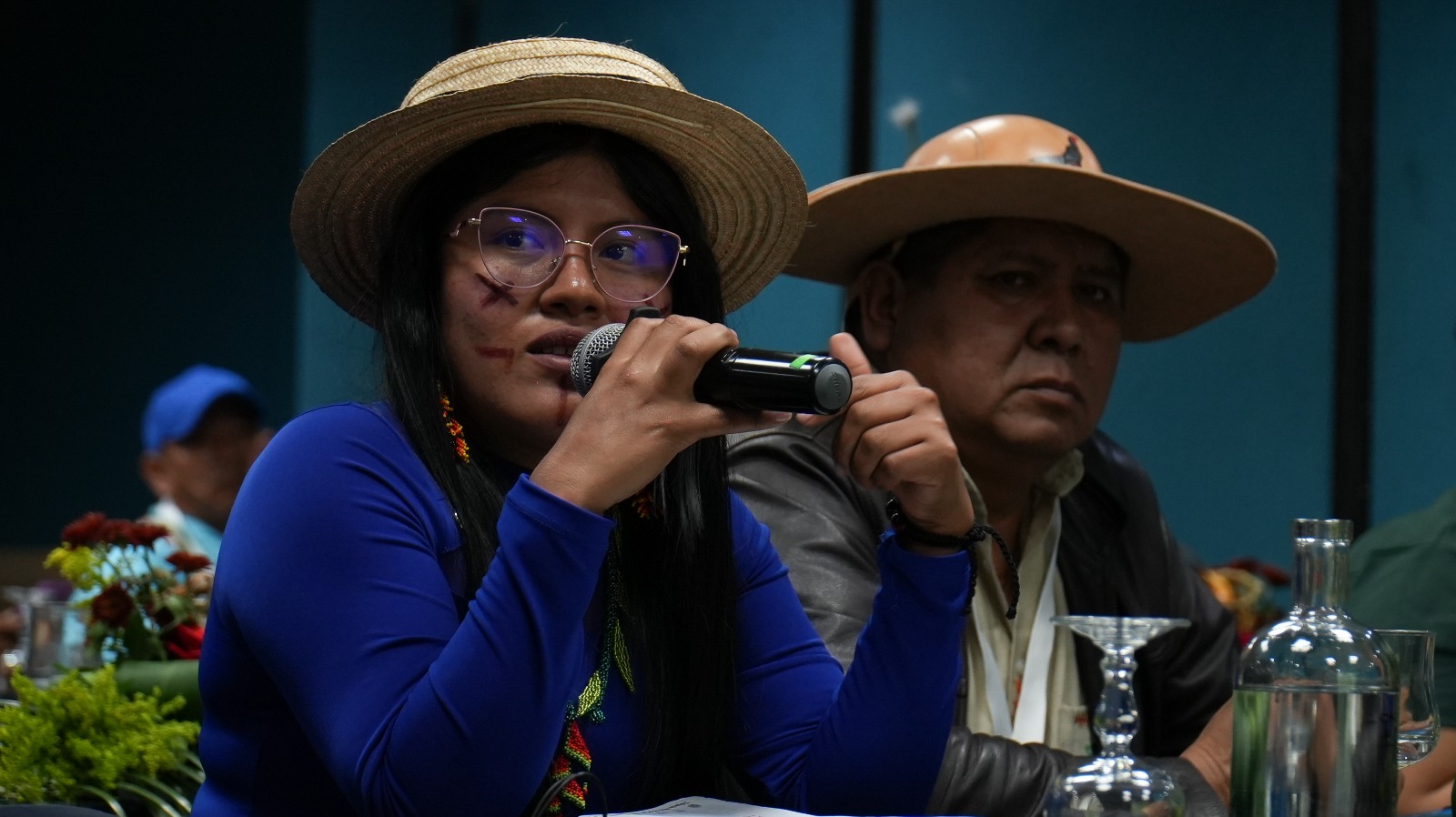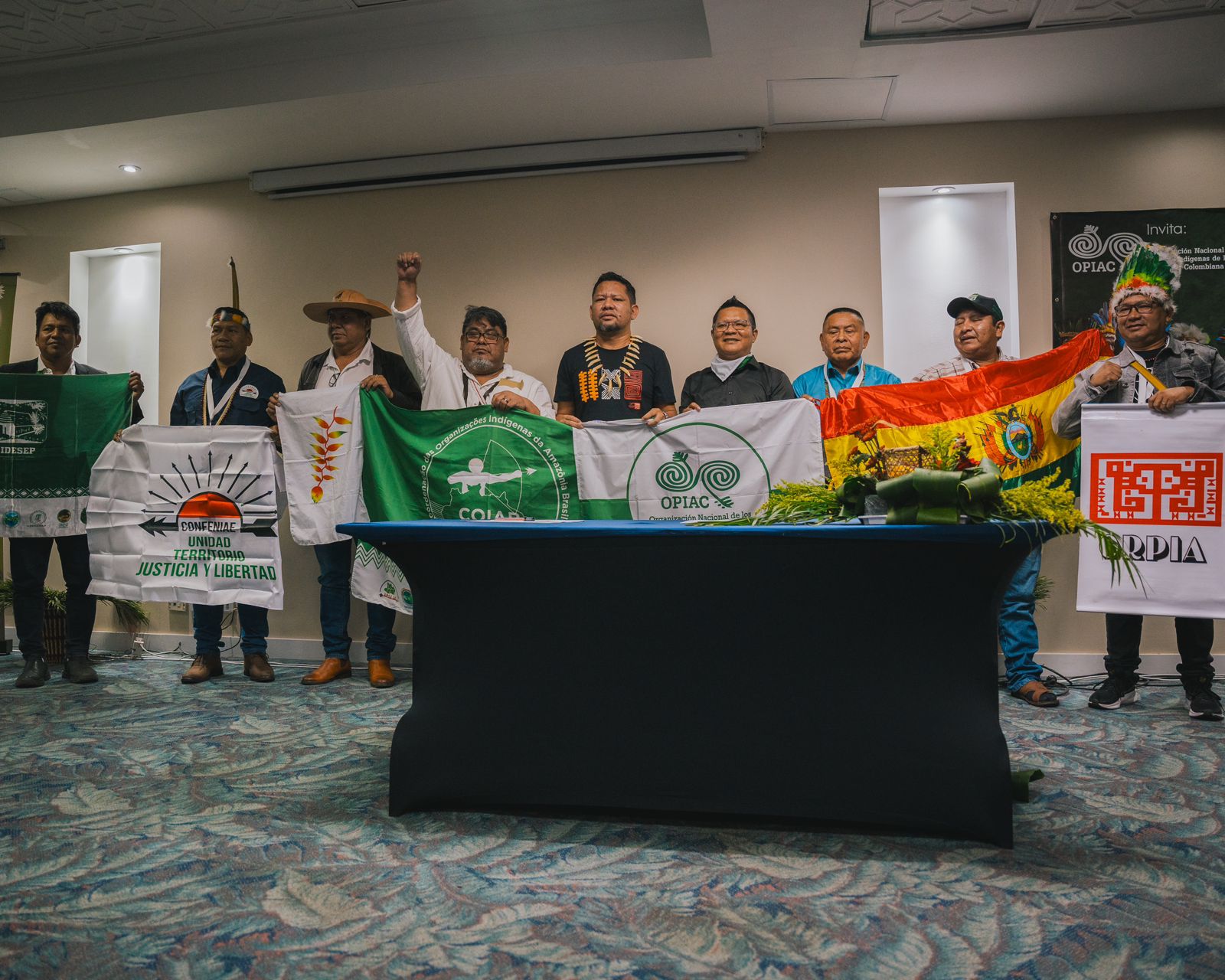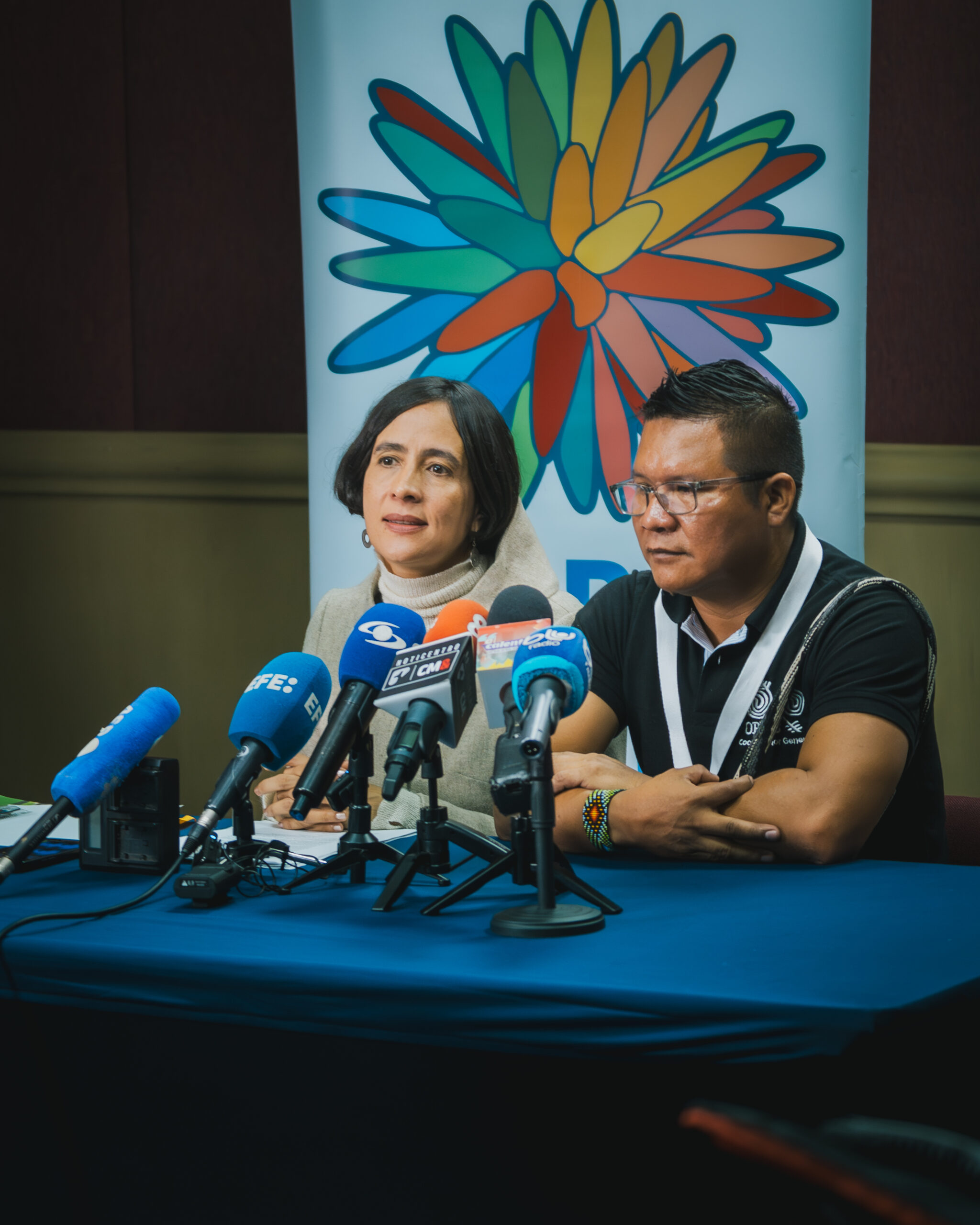For a historic bringing-together of diverse parties to ensure Indigenous Peoples rights and the environmental protection that stems from such rights, look no further than a meeting of Indigenous and governmental players from nine Amazon Basin countries on August 14-16 in Bogota.
The landmark event was organised by OPIAC, the National Organisation of Indigenous Peoples of the Colombian Amazon, to seek a common position ahead of October’s UN Convention on Biodiversity, COP 16, in Cali, Colombia
It was funded by Tenure Facility’s Learning Exchanges Programme, which is designed to support such Indigenous-led efforts.
The meeting was a success, resulting in joint goals and in the creation of the G9 – Indigenous Amazon, an informal regional network to influence COP16 and the climate change summit COP30.

Photo courtesy - Meseta Films
Seeking to find common ground at COP 16 – no mean feat given the diversity of views among the groups and countries concerned – is crucial both for Indigenous Peoples and the world’s biodiversity. Globally, Indigenous Peoples are the proven guardians of our planet’s forests and what lies within; in the case of the Amazon, their territories comprise 45 percent of the basin’s remaining intact spaces.
“We Indigenous Peoples are important for saving biodiversity not only in this country but also for the world,” OPIAC President Oswaldo Muca told the Bogota event.
The three-day meeting allowed for the sharing of territorial and biodiversity experiences, challenges and needs, as well as identifying common obstacles and shared priorities for COP 16. It brought together Indigenous organisations from the nine countries*, Indigenous delegates from the six departments of the Colombian Amazon, diplomats, and national governments.

Photo courtesy - Meseta Films
The nine Amazon Basin Indigenous organisations came to a strategic agreement outlining their biodiversity priorities and setting common actions to for COP16. The key points of this agreement include:

Photo courtesy - Meseta Films
A key element of the meeting, meanwhile, was the support from some government officials.
“We believe that strengthening Indigenous Peoples’ knowledge systems, governance, territorialities, and advocacy capacity has an impact on greater ecological integrity for life,” Susana Muhamad, Colombia’s Minister of Environment, said.
As hosts of COP 16 this year, Muhamad and the Colombian government will play a leading role.
A positive marker was the signing of a pact between OPIAC and the Ministry of Environment to work together on a set of actions to promote biodiversity conservation in the country.
*Colombian organiser OPIAC, plus the Confederation of Indigenous Nationalities of the Ecuadorian Amazon, the Coordination of the Indigenous Organizations of the Brazilian Amazon, the Amerindian Peoples Association (Guyana), the Interethnic Association for the Development of the Peruvian Rainforest, the Organization of Indigenous People in Suriname, the Confederation of Indigenous Peoples of Bolivia , the Federation of Indigenous Organizations of (French) Guyana, the Regional Organization of Amazonian Indigenous Peoples (Venezuela)
Learning Exchanges